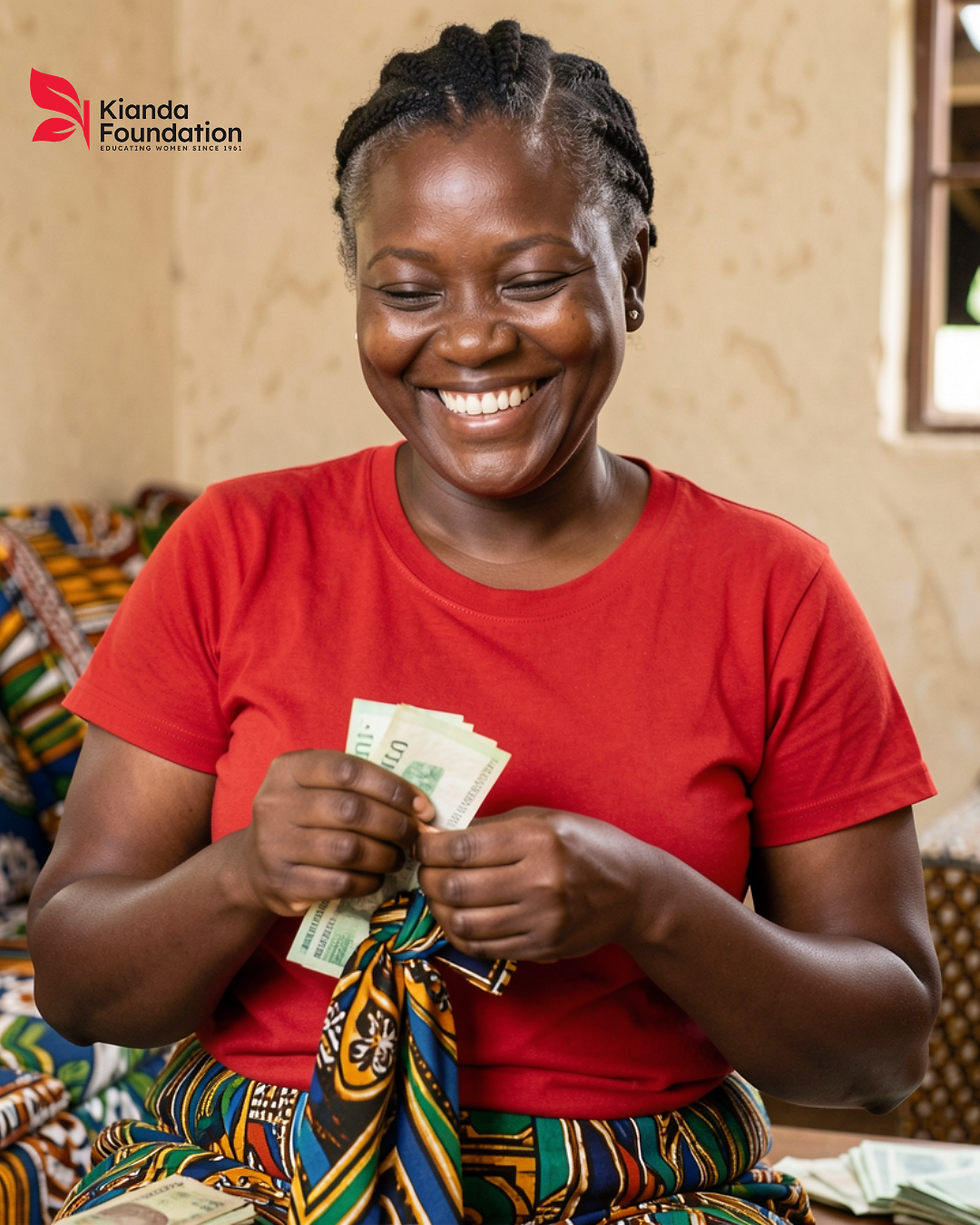The Role of Women’s Economic Empowerment in Sustainable Development.
- Hariet Mwangi
- Nov 10, 2025
- 3 min read

When a woman steps into her power with training, fair pay, and the freedom to make economic choices, whole communities rise with her. Women’s economic empowerment is not a niche gender issue; it is a development superpower. It fuels poverty reduction, strengthens families, accelerates climate resilience, and makes economies more productive, inclusive and just. At Kianda Foundation, we see this every day: when women are given skills, resources and opportunity, lives change radically and permanently.
Why women’s economic empowerment matters.
Economic empowerment means more than income. It means agency: the ability to make decisions about work, money, and the future. When women earn, save, own, and manage resources, evidence shows they reinvest more in their children’s health, education and nutrition multiplying the impact across generations. This is exactly why the United Nations places gender equality at the centre of the 2030 Agenda: gender equality unlocks progress across all Sustainable Development Goals. United Nations+1

The data: powerful and urgent
The numbers are startling. Women’s labour force participation remains far below men’s in many regions, and closing that gap could raise global GDP dramatically. The World Bank and other institutions estimate that eliminating gender gaps in employment and legal barriers could boost global output by more than 20%. Meanwhile, international labour statistics show persistent gaps in employment, unpaid care burden, and occupational segregation, barriers that slow development everywhere. These aren’t abstract figures; they describe lost potential and children who miss school, farms that under-produce, and businesses that never scale because women lack equal opportunity. World Bank+2Reuters+2
How women’s economic empowerment advances Sustainable Development.

Economic resilience and poverty reduction. When women can earn and save, households become more resilient to shocks from health crises to crop failures. Investments in women translate directly into better nutritional and educational outcomes for children. IDRC DSpace Direct
Inclusive growth. Gender-equal access to jobs and finance expands the talent pool, spurs entrepreneurship, and diversifies national economies, making growth more stable and broadly shared. Open Knowledge
Climate adaptation and environmental stewardship. Women, especially in rural communities, play key roles in managing natural resources. Empowering women with resources, land rights and decision-making increases the likelihood of sustainable resource use and community-led climate responses. UN Women Africa
Social cohesion and intergenerational change. When women lead enterprises and community projects, social norms shift. Girls grow up with broader horizons; communities adopt more equitable practices; long-term social change follows.
What works — proven actions that scale impact.
Research and major development actors point to a set of evidence-backed approaches that improve women’s economic outcomes:

Skills and training tailored to local markets (technical, digital and business skills). Open Knowledge
Removing legal and policy barriers that limit women’s work, ownership and entrepreneurship. (Reforming discriminatory laws shows high economic returns.) Reuters
Access to finance and markets — from microcredit plus business coaching to market linkages. World Bank
Childcare and care policies that reduce unpaid work burdens and enable sustainable participation in the labour force. UN Women
Engaging men and communities to shift norms and build shared responsibilities. Open Knowledge
The gaps we must close.
Despite progress, global reports warn that at current rates many gender gaps will take generations to close. Persistent legal discrimination, limited access to technology, disproportionate unpaid care work, and under-investment in women’s entrepreneurship keep progress slow. That’s why integrated, well-funded programs combining skills, finance, legal reform, and social norms change are essential now. World Economic Forum+1
Kianda Foundation’s role: local action, global purpose.
At Kianda Foundation we translate this global evidence into everyday transformation. Through skills training, small-business support, and community-centered programs, we help women take the leap from survival to sustained economic agency. Each graduate who enters a kitchen, a classroom or a small enterprise carries the potential to transform a household and inspire a neighbourhood, creating the ripple effects the SDGs promise.

A call to collective action.
Sustainable development asks more than goodwill; it asks systems change. Governments, donors, businesses and communities must invest in the structural enablers of women’s economic empowerment: laws that protect and promote equality, decent work and living wages, universal care services, access to finance and digital inclusion.
If we invest wisely, combining legal reform, services, and programmes that meet women where they are, we don’t only change individual lives. We change economies and secure a fairer, greener future for everyone. The evidence is clear: empowering women is the fastest, most reliable path to more resilient societies and sustainable development. United Nations+1





Comments